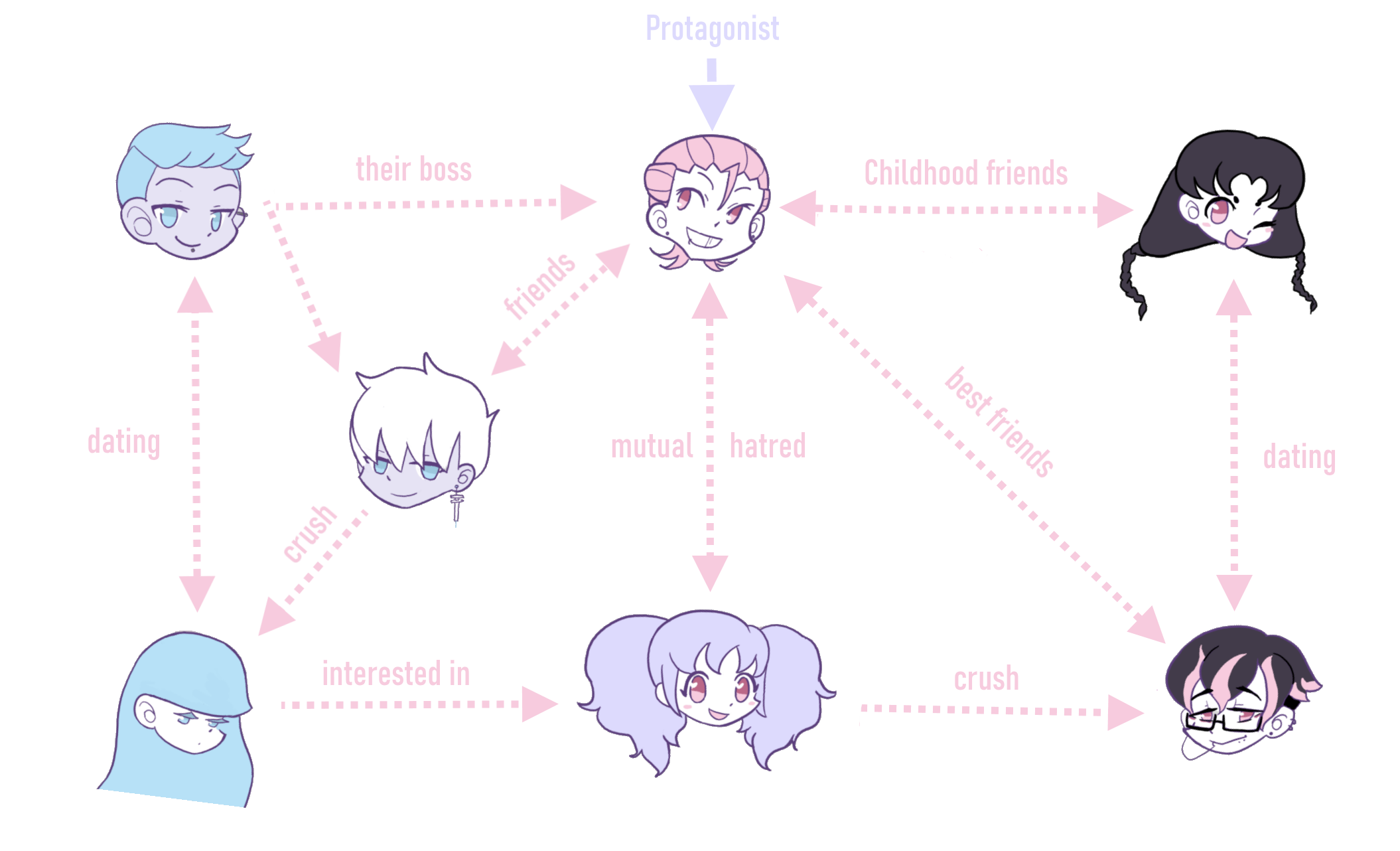What is the game about?
Basically, Terminal Status revolves around a group of 20-somethings attending a space academy and the complicated web of relationships (romantic and otherwise) that they're all caught up in.

A lot of the fun comes with exploring how everyone connects to one another, as well as speculating on the feelings of the one caught in the middle of it all (our protagonist is not exactly a reliable narrator).
What else is it about?
Disability
Disability, whether it be through metaphor, imagery, or explicit representation, influences every part of this story.
Throughout the story (and starting far before it), an interstellar war is waging on in the background of Terminal Status. What's the cause of this war? It doesn't matter. The war is just a metaphor for the violence that is always occurring, for the struggle some of us fight through every day, and for the fact that whether you're weak or strong all of us are equally likely to get our shit fucked up by a freak accident (or a big mech with a sword).
Big mechs with swords are truly the great equalizer.
Said mechs are called TR4-UMAs (or UMAs for short). Many members of the cast are UMA pilots; the way they interact with their UMAs serve as a metaphor for how they treat their bodies. Your body can be something you live in, your home that you learn to properly love and maintain; your body can also be a tool, something that merely gets you from point A to Point B.
We survive in them, when times are tough. And sometimes we're reckless in them, when everything feel out of control and you have no other outlet.
The idea of health (mental and physical) is embedded into every facet of the story, especially the naming conventions. Everyone and everything in Terminal Status (including the TR4-UMAs) have meaningful names...and by 'meaningful' I mean edgy, because as thoughtful as I'm trying to make this story I also wanted to be self-indulgent and throw in a bunch of words that I thought sounded cool. See:
Menhera
Another major influence of this story are the yamikawaii and menhera aesthetic. While these are normally associated with fashion and artwork, I like to believe the aesthetics also have certain narrative themes that can be applied to writing.
Simply put, yamikawaii involves the mixing of sweetness (often portrayed through cutesy pastels) with suffering. Literally, yamikawaii means cuteness and darkness. In practice, this looks like people who are hurting and are craving release, rest, and for things to stop hurting (whether they find that through healthy ways or not).
And there's a reason why medical aesthetics appear so often in menhera works. So often when facing severe mental illness or disability, the hospital is a place you go when you reach your breaking point and need to be taken care of. When pain becomes gentleness. When suffering becomes sweetness.
This is the sort of narrative I love. Terminal Status is a story that interrogates what strength is, what resilience looks like. It explores the longing for comfort and sanctuary, and the lengths some people will take to find it. This is a story about people who want to get better, people who want to get worse, and people who just wish things were easy.
Ripping off a Shoujo Manga
So basically there was this one shoujo manga that I loved, up until it made me really mad... So I thought, "why not rewrite this story, but change the parts I don't like? And what if I replaced the characters with queer adults? What if I took all the parts about Japanese high school life and changed it to intergalactic mech battles in space? And what if it was all actually completely different?"
And that's what Terminal Status is about.